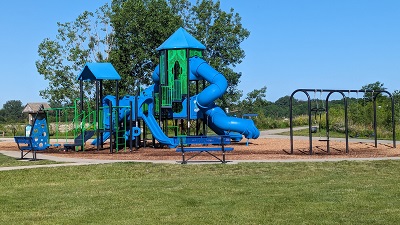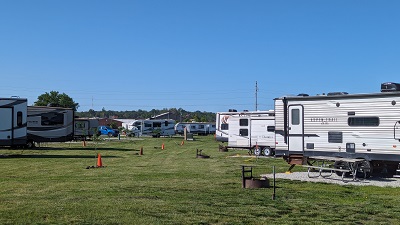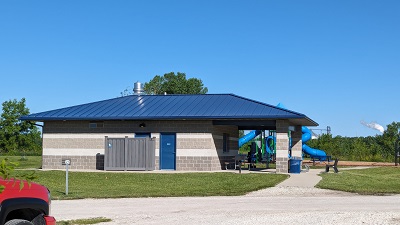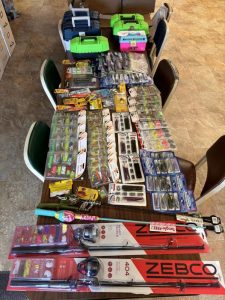CLICK HERE for the latest market quotes from the Iowa Agribusiness Network!
CLICK HERE for the latest market quotes from the Brownfield Ag News Network!
CLICK HERE for the latest market quotes from the Iowa Agribusiness Network!
CLICK HERE for the latest market quotes from the Brownfield Ag News Network!
(Radio Iowa) – Pork industry leaders meeting this week in Des Moines say they’re hoping the Farm Bill working its way through Congress addresses California’s animal welfare law. It requires pork sold in California to come from breeding pigs with at least 24 square feet of space so they can sit, stand and move around. The U.S. Supreme Court upheld the law last year. Chase Adams is the assistant vice president of domestic policy for the National Pork Producers Council. “We just need to ensure there’s some certainty out there for producers,” Adams says.
The Farm Bill developed by the U-S House Ag Committee would prevent one state from dictating how pork producers in other state operate. “It essentially says that no state can ban the sale of a product produced out of that state’s borders based on an arbitrary standard,” Adams says, “so, we’re really pleased with that.” National Pork Producers Council president Lori Steverman, a farmer in southern Minnesota, is hoping the same language ends up in the SENATE Ag Committee’s proposed Farm Bill.
“I do think that congress wants to come away with something that they can say they’ve done. I think it will be challenging to go home to their districts and hear from their constituents: ‘You didn’t really do anything,'” she says. “I hope that puts some pressure on them to move ahead then.”
The two-day World Pork Expo at the Iowa State Fairgrounds wrapped up last (Thursday) night.

Volunteers, Atlantic Parks & Rec Personnel & Trees Forever Representatives gather gather to plant trees at the Schildberg Recreation Area Campground in Atlantic, Iowa (6-7-2024)
(Atlantic, Iowa) – A little more than a dozen volunteers and Parks and Rec personnel gathered at the Schildberg Recreation Area RV campgrounds this (Friday) morning, in Atlantic, to help plant a variety of 32 trees. Local Trees Forever representative Dolly Bergmann, said Alliant Energy provided funding for the project in the form of a $3,000 grant.
Trees Forever also made the trees available through a grant. Bergmann said City employees did some prep work before today’s (Friday’s) tree planting.
She informed the volunteers (and for that matter, anyone who wishes to plant trees on their own property), of the right and wrong ways to plant a tree.

Schildberg RV Park playground

RV’s fill the camping pads at the Schildberg Rec Area RV Park (6-7-24)

Schildberg Campground Shelter House
She advised putting three-to four-inches of mulch for each tree, but not right up against it. “Leave a little doughnut hole around [the tree].” City employees will water and eventually place stakes and protective barriers around the trees to keep the deer away. The RV Pads at the Schildberg Campground were mostly full this (Friday) morning, with campers taking advantage of the Schildberg Recreational Trail, the fire pits, playground and shelter-house amenities. (Ric Hanson – Photos)
(Radio Iowa) – An analysis released by the Sierra Club and landowners who object to the proposed Summit Carbon Solutions pipeline suggests the project will require drawing well over three BILLION gallons of water from Iowa’s aquifers each year. Jess Mazour is the conservation coordinator for the Iowa chapter of the Sierra Club. “This is not a good use of our public water supply,” Mazour says. “We need to ensure we have water for generations to come and not squander it on a private company.”
Mazour says ethanol plants already use a significant amount of water and the pipeline would be an even bigger drain on Iowa’s water supply. “We have no idea how much water is below us underground,” Mazour says. “…Our bottom line is we need Iowa to take a long, hard look and study our aquifers and we need to deny water for carbon capture and storage for any company.”

Jess Mazour of the Sierra Club’s Iowa Chapter speaking during an online news conference June 6, 2024.
The Iowa Department of Natural Resources has already granted Summit a permit to withdraw up to 55 million gallons of water each year from a new well near an ethanol plant in Chickasaw County. Wally Taylor, the attorney for the Iowa chapter of the Sierra Club, says the agency has been handing out water use permits like candy, without considering the impact on groundwater resources.
“The DNR sees its role as serving its customers and the customer is the applicant for a permit,” he says. “In fact, they used to call that portion of the DNR the Environmental Protection Division. Now it’s the Environmental Services Division. That tells you all you need to know.”
According to federal reports, it takes between 10 and 17 liters of water to produce ethanol. More water would be required at each ethanol plant site to cool carbon so it can be compressed, liquefied and pushed through a pipeline. More than half of Iowa’s corn crop is used to produce ethanol. Summit and corn growers who support the project say the pipeline is crucial to the survival of the ethanol industry, as more consumers demand fuel that has a low or no carbon footprint.
Summit’s pipeline would sequester carbon from 57 Midwest ethanol plants, including 30 in Iowa.
DES MOINES, Iowa [KCCI] — Bridgestone will be laying off some employees at its Des Moines plant. In a statement, Bridgestone confirmed the layoffs but would not specify how many workers would be impacted.
“Bridgestone regularly evaluates all aspects of its business to ensure we remain competitive and resources are allocated in a manner that best supports our business strategy,” the company said in a statement.
Bridgestone says it notified United Steelworkers (USW) leadership in Des Moines about the workforce reduction, citing “demand constraints in the agriculture tire sector.”
(Greenfield, Iowa) – The Board of Supervisors in Adair County, Wednesday, were introduced to the County Conservation Department’s Summer, seasonal Naturalist. Ashlynn Schubert talked about what some of the plans she has for this Summer.

Ashlynn Schubert
A full list of the activities can be found on the Adair County Conservation Board’s Facebook page. Schubert teaches 6th through 8th grade science at the Coon Rapids-Bayard School District during the school year. She’s originally from Cherokee, in northwest Iowa, but she and her husband moved to Adair last Summer, for the opportunity to work in the same school district.
Adair County Conservation Director Dominic Johnson reminds citizens of the County about the free fishing weekend this weekend, in Iowa.
Johnson said $700 in door prizes have been donated for the fishing clinic, which runs from 9-until 11-a.m., Saturday, and includes lunch, with all you can eat hot dogs. The event begins with at 8-a.m. with registration, followed by a presentation from DNR officials. The clinic is free to kids of all ages.

Fishing clinic door prizes
The next meeting of the Adair County Board of Supervisors is Tuesday, June 11th, at 9-a.m.
(Radio Iowa) – The Iowa Department of Agriculture says preliminary testing has found a case of Avian Influenza in a dairy herd in O’Brien County. Final testing is pending at the National Veterinary Services Laboratory (NVSL) in Ames. This is Iowa’s first reported case of Avian Influenza within a dairy. There have been 80 confirmed dairy cases in eight other states.
The Iowa Ag Department says it will soon be announcing additional response measures. Diary cows appear to recover from the disease, while birds who are infected have to be destroyed.
(Radio Iowa) – A very rainy May set Iowa farmers back on planting, and all that moisture also put crops at risk. Pools of standing water can still be found in low areas of fields throughout the state, leaving nearly a quarter of Iowa’s farmland topsoil holding surplus moisture. Besides keeping farmers from finishing their planting, U-S-D-A Midwest Climate Hub director Dennis Todey says the standing water could hurt already-planted crops down the line, if it dries out.
Todey asks, “Will root development be appropriate so that if we turn drier in the summer that can we still get at moisture that’s in the soil?” Todey says he has several concerns for planted crops in areas where there’s still standing water.
“The concern always at this point is, one: yield, can we get it along enough in the season to get a yield,” he asks, “and then two: will it get to mature in time before the fall freeze?” June is typically Iowa’s wettest month, and current climate projections show more rain is likely, with drier conditions possible by the middle of the month.
(Radio Iowa) – Congressman Randy Feenstra says he’s hopeful a new Farm Bill will get through the House and Senate yet this year. “I think it might,” Feenstra says. “We’re going to get it marked up in the House in June and then it’s just a matter of working through the Senate.” Feenstra is a member of the House Ag Committee and the so-called “mark up” is the prelude to presenting the bill to the full House for a vote. Last fall, congress had to extend the Farm Bill that passed in 2018 because work on a new five-year plan was stalled. “There’s a lot of ongoing discussion right now of how we can get it done before September 30. I think there’s incentives on both sides and for both parties. We both see how important crop insurance is, our export markets, China buying our farmland,” Feenstra said. “I think there’s key components here that both parties want to get completed and I’m optimistic as to what I’ve heard over the past week.”
Earlier this week Feenstra emerged as the winner of the G-O-P Primary in Iowa’s fourth congressional district. “Fourth district voters sent a clear message that they want a conservative leader who delivers real results for our families and our farmers, businesses and rural communities,” Feenstra says.
Kevin Virgil, a software company owner who served in the Army and was a C-I-A officer, moved back to the O’Brien County farm where he grew up to run against Feenstra. Virgil made opposition to carbon capture pipelines the cornerstone of his campaign. Feenstra won just over 60 percent of the vote in the primary, compared to just under 40 percent for Virgil. “I was endorsed by the National Rifle Association. I was endorsed by the (National) Right to Life. I was endorsed by the Republican Jewish Coalition. I was endorsed by the Iowa Farm Bureau. These are all conservative organizations,” Feenstra says. “I think they know what’s best, along with our voters.”
Feenstra, who had surgery on May 2nd to treat a blood clot in his leg, says he’s doing well and is following his doctor’s recommendations during the recovery period. Feenstra, who is 55, is seeking a third term in the U-S House.
DES MOINES, Iowa (KCRG) — Iconic Iowa brand John Deere announced this week layoffs at several of its locations, confirming plans in a May 31 email to employees. The layoffs, according to Iowa Workforce Development, will affect the following sites:
Matthew Mitchell, a Drake University professor of strategy says the global company employs 70,000 worldwide, so the Iowa numbers represent a small part of the entire workforce. John Deere reported net income of $2.370 billion in its second-quarter earnings in May. The company forecasted net income for fiscal 2024 to be about $7 billion. The construction industry remains consistent while global ag and turf demands are not as strong, the company said.
The layoffs come after the company announced 190 workers would lose their jobs later this month. The company also announced more than 300 layoffs in April.
(Radio Iowa0 – Iowa is known as a global leader in producing things like corn, hogs, wind power and ethanol, but the state’s dairy industry is also being celebrated this month. Mariah Busta of Decorah is the executive director of the Iowa State Dairy Association. “Iowa actually ranks number 11 in dairy production, but it is the fifth-largest agriculture sector in Iowa,” Busta says. “Iowa is home to about 750 dairy farms and they’re sprinkled throughout the state, but a lot of them land in eastern Iowa and actually up in the northwest corner of Iowa.”
Busta commends the efforts of the state’s dairy producers for persevering over the decades. “We’re losing the number of dairy farms in the state,” Busta says. “The number has been declining over the years, but the number of cows has still stayed steady, if not grown a little bit, which is nice. Milk production continues to increase as well.”
The association says Iowa has about 220-thousand dairy cows. A recent study of the economic impact of Iowa’s dairy industry reports a per-cow per-year impact of more than 25-thousand dollars, giving Iowa’s dairy industry an economic impact of more than five-billion dollars per year.